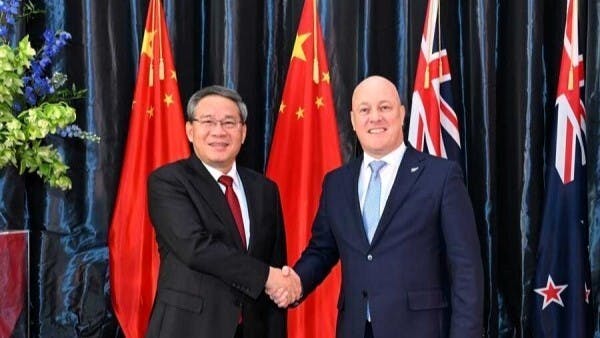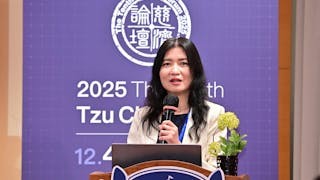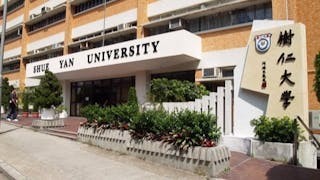中國國務院總理李強最近訪問了紐西蘭,隨後又訪問了澳洲,這對中國的貿易外交和地緣政治產生了影響。
中國是紐西蘭最大貿易夥伴
6月14日,李強在奧克蘭歡迎晚宴上致辭,強調中紐兩國52年的友好邦交和全面戰略夥伴關係。他補充說,中國仍然是紐西蘭最大貿易夥伴、最大出口市場。
李強巧妙地強調了兩國合作領域,包括環境保護、農業發展、環境可持續性、低碳轉型、綠色科技等。然後他轉而強調兩國的多元文化的包容,兩國都重視自由貿易、創新、創造力和知識產權保護。
他強調,兩國都高度重視和平、對話、合作,而不是對抗和衝突。合作領域包括生物醫藥、農業、食品、數字經濟、旅遊、教育交流、文化互動、資訊科技、能源等領域。
此外,李強又提到,雙邊合作可以透過聯合國主導的國際秩序和國際法的支持,以及多邊主義的實踐來實現。
「願同各國分享機遇 實現共同發展」
李強表示,中國經濟回升向好態勢持續鞏固增強,中國願同各國繼續分享機遇,實現共同發展。
這位中國國務院總理又表示,中國對紐西蘭高品質乳製品、牛肉和羊肉產品的需求日益增長。他訪問了位於奧克蘭的紐西蘭植物和食品研究所,又與商界領袖、學者和官員會面並共進晚餐。
目前,中國是紐西蘭最大的貿易夥伴,雙邊貿易額達380億紐西蘭元。
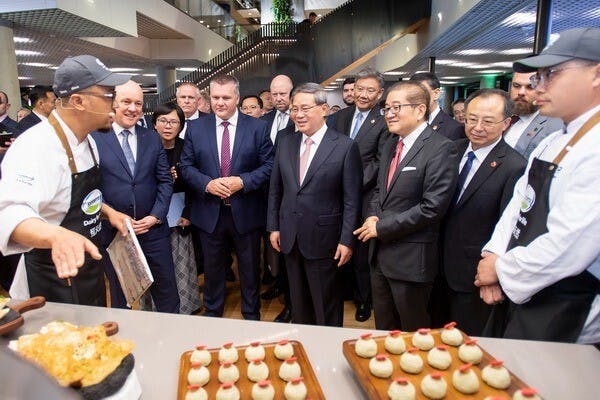
李強務實談經濟 避免提及敏感議題
分析李強的演講和言論,中國採取了經濟務實的貿易政策,以獲得紐西蘭更緊密的支持。儘管紐西蘭是AUKUS(即澳、英、美三國軍事聯盟)的潛在成員,也是美國主導的亞洲軍事與安全聯盟的成員,但李強巧妙地避免在公開場合提及敏感議題,而是務實地關注政治性低、經濟價值高的合作領域。
近年來,中國「威脅」的看法在紐西蘭和澳洲日益盛行,兩國對中國與所羅門群島等一些太平洋島國日益密切的關係感到擔憂。中國和菲律賓圍繞南海部分島礁的領土爭端,也令澳洲和紐西蘭感到震驚。澳洲和紐西蘭的一些政治人物似乎誇大了中國的「威脅」,並對中國在其社會和社區中的統戰工作表示擔憂。
因此,李強對紐西蘭採取非政治化做法是明智的,重點關注有一致共識的生產和經濟領域,而避開政治爭議領域。擴大雙邊貿易、進一步市場化、提升產品與服務品質、加強相互投資,成為李強此次紐西蘭之行的特色。
中方向澳洲提供另一對大熊貓
李強強調貿易外交的務實和去政治化的態度,可能會在他接下來訪問澳洲和馬來西亞時再一次得到體現。在中國取消對澳洲葡萄酒的關稅後,澳洲與中國的關係最近略有改善。中國將向阿德萊德動物園提供另一對大熊貓,將熊貓外交與貿易外交結合。由於吉隆坡對中美緊張關係採取相對獨立的態度,馬來西亞仍是中國的重要鄰國。因此,可以預見,李強此次訪問澳洲和馬來西亞的貿易外交和去政治務實的態度將會延續。
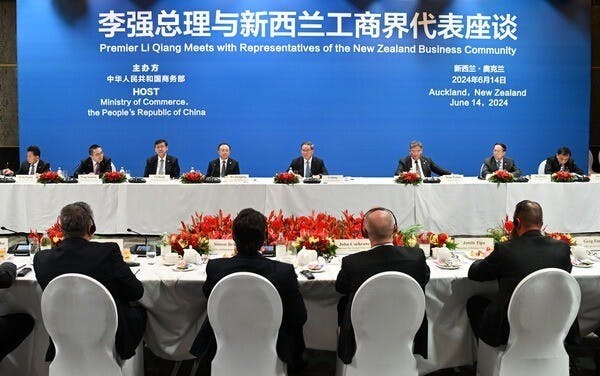
李強此次訪問紐西蘭,也可視為繼2024年3月王毅外長訪問惠靈頓後的後續行動。李強進一步深化了中國與紐西蘭的經濟關係,或許展現了北京南向睦鄰外交的新模式。
總而言之,李強此次訪問紐西蘭不僅是繼王毅訪問惠靈頓之後的後續行動,也是以貿易為重點、以生產等共同合作領域為重點的新型南向睦鄰外交。李強對紐西蘭的貿易外交是精心策劃的,接下來訪問澳洲時,這種外交便與熊貓外交交織在一起。他訪問的最後一站馬來西亞,將是重要的一站,這表明中國渴望與那些在中美競爭中相對獨立的亞太地區國家接觸。
Li Qiang’s visit to New Zealand and China’s trade diplomacy
The recent visit of Chinese Premier Li Qiang to New Zealand is now followed by his visits to Australia, with implications for China’s trade diplomacy and geopolitics.
On June 14, Li Qiang delivered a speech at a welcoming gala dinner at Auckland, emphasising the friendly and 52 years of diplomatic relations between China and New Zealand and their comprehensive strategic partnership. He added that China has remained New Zealand’s largest trading partner and biggest export market.
Li Qiang tactfully stressed the cooperative areas between the two countries, including environmental protection, agricultural development, ecological sustainability, low-carbon transition, and green technology. Then he shifted to emphasise the multicultural diversity of the two countries, which both value free trade, innovation, creativity, and the protection of intellectual property rights.
He stressed that both countries attach great importance to peace, dialogue, and cooperation rather than confrontation and conflict. Such cooperation includes areas like biomedicine, agriculture, food, the digital economy, tourism, educational exchange, cultural interactions, information technology, and energy.
Furthermore, bilateral cooperation can be forged through the support of UN-led international order and law, and the practice of multilateralism.
Li elucidated that the Chinese economy remains growth-oriented and resilient, leading to more opportunities for countries to share the fruits of common economic development.
The Chinese Premier also added that China requires the import of high-quality diary, beef and lamb products from New Zealand. He visited the New Zealand Institute for Plant and Food Research in Auckland, meeting and dining with businesspeople, academics, and officials.
China is now the largest trade partner of New Zealand with bilateral trade totalling NZ$38 billion.
Analysing Li’s speech and remarks, China has adopted an economically pragmatic trade policy to secure closer support from New Zealand. Although New Zealand is part of the AUKUS and a member of the US-led military and security alliance in Asia, Li Qiang skilfully avoided mentioning the sensitive issues in public but pragmatically focused on the cooperative areas of low politics with high economic values.
In recent years, the perception of the China “threat” has gained currency in New Zealand and Australia, which are worrying about China’s closer relations with some Pacific islands like the Solomon Islands. The territorial disputes between China and the Philippines over some reefs in the South China Sea have also alarmed Australia and New Zealand. Some politicians in Australia and New Zealand have appeared to overstate the Chinese “threats” by raising their concerns about Chinese united front work in their society and community.
As such, Li Qiang’s depoliticisation approach to dealing with New Zealand is a wise one, focusing on productive and economic areas with common consensus, while steering away from politically controversial terrains. The expansion in bilateral trade, further marketization, the improvement of high quality products and services, and the enhancement of mutual investments have become the hallmarks of Li Qiang’s visit to New Zealand.
Li’s pragmatic and depoliticising approach to emphasising trade diplomacy is likely to be revealed and repeated in his next visits to Australia and Malaysia. Australia’s relations with China have slightly improved recently after China scrapped its tariffs on Australian wine. China is expected to give two new pandas to the Adelaide Zoo, combining its panda diplomacy with trade diplomacy. Malaysia remains an important neighbour to China due to Kuala Lumpur’s relatively independent attitude towards Sino-US tensions. Hence, it can be expected that Li Qiang’s trade diplomacy and depoliticising but pragmatic approach will persist in his visits to Australia and Malaysia.
Li Qiang’s visit to New Zealand could also be seen as a follow-up action after Foreign Minister Wang Yi’s visit to Wellington in March 2024. Wang succeeded in upgrading the China-New Zealand Free Trade Agreement and launching negotiations on the negative list of trade in services. Li deepened China’s economic relations with New Zealand further, demonstrating perhaps a new pattern of Beijing’s go-south neighbourly diplomacy.
In conclusion, Li Qiang’s visit to New Zealand was not only a follow-up action after Wang Yi’s visit to Wellington, but also a new go-south good neighbourly diplomacy combining the focus on trade with the emphasis on productive and other common areas of cooperation. Li’s trade diplomacy towards New Zealand was carefully orchestrated, while such diplomacy is intermingled with panda diplomacy in his next visit to Australia. His final stop in Malaysia will be an important one showing China’s eagerness to reach out to countries that are relatively independent from the ongoing Sino-US rivalries in the Asia-Pacific region.
原刊於澳門新聞通訊社(MNA)網站,本社獲作者授權轉載。原文網址:https://tinyurl.com/42xnupmy



